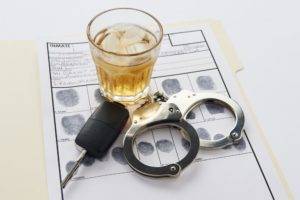Legally Reviewed By:
Brian P. Gabriel, Esquire
 If you’ve been arrested for a DUI for the very first time, you might be unclear about how the State goes about suspending your license. Technically, your DUI case is two cases in one. It’s both a civil and criminal case, and you might face two license suspensions — one from the administrative case and one from the criminal case. Let’s take a look at each type of case and how they can impact your life after a DUI arrest.
If you’ve been arrested for a DUI for the very first time, you might be unclear about how the State goes about suspending your license. Technically, your DUI case is two cases in one. It’s both a civil and criminal case, and you might face two license suspensions — one from the administrative case and one from the criminal case. Let’s take a look at each type of case and how they can impact your life after a DUI arrest.
The Two Sides of Your DUI Case
On one side, your DUI is a civil administrative law case in which you must appear in front of a state hearing officer rather than a judge. Those who litigate civil cases must meet a lower burden of proof to succeed than those who litigate criminal cases. However, the only punishment you may receive from the outcome of your civil case is a license suspension.
Your second DUI case is a criminal case. Your attorney will help you resolve this case by representing you in court. Your criminal case is tried in a courtroom in front of a judge, who may decide to impose penalties upon a conviction. The judge may suspend your driving privileges further and has the authority to impose other penalties, such as:
- Fines
- A period of probation
- A period of incarceration
- An ignition interlock device
- Community service
- DUI treatment/driving school
- And other types of penalties are possible
If you’re not convicted, you may still be subject to the civil license suspension. An attorney can also help you achieve the best possible outcome in your civil case.
Which comes first, the civil DUI case or the criminal DUI case?
Your civil administrative DUI case begins the moment you’re arrested. When the police confiscate your Florida driver’s license, they send it to the Florida Department of Highway Safety and Motor Vehicles. Then they issue you a citation, which doubles as your 10-day temporary driving permit.
You must hold onto the citation, which is an unrestricted driving permit, meaning it allows you to travel anywhere you wish until it expires. It’s crucial to work with an attorney to demand a suspended license hearing before the ten-day period ends.
Demanding a hearing allows the DMV to extend your driving privileges until they can hold the hearing, which is when they decide to maintain or lift your driver’s license suspension. The license you receive in the meantime is different from the temporary unrestricted license that was part of your traffic ticket; first, the DMV mails you a document that represents your license — it’s generally valid for six weeks. But most importantly, the main difference between the 10-day license and the six-week license is that the latter is a BPO, which stands for “Business Purpose Only.”
Conditions of a Business Purpose Only Florida License
Unfortunately, your BPO license can’t take you everywhere you want to go; but, for the most part, it can take you where you need to go.
- To and from work and on-the-job driving
- To and from school
- To and from medical appointments
- To and from religious services
If you succeed in your license hearing, you can go to the nearest DMV to get another unrestricted driver’s license. This license is permanent unless the court suspends it in your criminal case. If the DMV upholds your license suspension, your driving privileges are terminated on the expiration date of your temporary six-week license. Afterward, you will need to complete a period of hard time suspension, meaning that you will not be able to drive legally for any reason. At the conclusion of this period, you may become eligible for a hardship BPO license.
License Suspension Defense in West Palm Beach
Has your license been suspended recently? Remember, you have just 10 days to act. Florida laws surrounding DUI license suspensions have been updated since July 2013, and you may need time to discuss your options for preserving your license with Brian Gabriel a DUI lawyer in West Palm Beach. For more information about protecting your driver’s license, contact Brian at The Law Office of Gabriel & Gabriel.
Attorney Brian P. Gabriel has more than 30 years of experience helping people fight to protect their driving privileges and has had many successful results. You can ensure he will provide your case with the care it deserves. Call Brian Gabriel at 561-622-5575 or click here for a free consultation.



